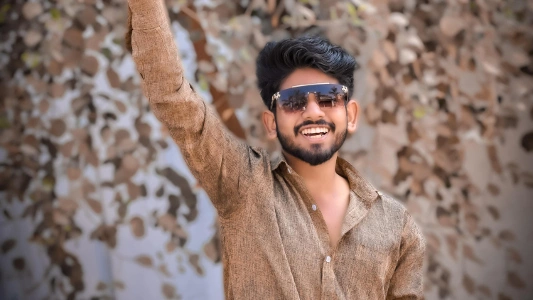How diabetic ketoacidosis (DKA) saved my life

In August 2019, I felt constantly hungry and thirsty. Having been overweight my entire life, I’d ignored my health for many years. My father, aunts, and grandparents all had hypertension and type 2 diabetes, and I always assumed that diabetes occurs in older ages. I wasn’t aware of type 1 diabetes and that it can occur at any age.
I shared my symptoms with my sister (a doctor), and she took me to the blood test lab to get my HbA1c checked. It came out as 11.4% (a non-diabetic person has a result of less than 5.7%). My family took me to see an endocrinologist. They diagnosed me with diabetes, and based on my age (I was 25) and symptoms initially thought I was type 2.
They put me on type 2 medication which I took for a week. Emotionally I was still unable to process my disease. I was in the 6th month of my marriage, and I had so many plans, but all of them were shattered by my diagnosis. I felt emotionally weak and physically stressed. My in-laws didn’t have a family history of diabetes, so had a limited understanding of it. My husband tried to understand my situation and support me in whatever way I needed.
In reality, I wasn’t type 2 – And, of course, the medications didn’t work for me.
On the 6th day, I lost all my appetite and couldn’t eat anything. On the 7th day, I started to feel acute pain in my diaphragm area.
I called my father, and he came to help me. The hospital was 3 hours away from my home, and during those 3 hours, the pain grew exponentially. When I finally arrived, I was admitted to the emergency room and diagnosed with diabetic ketoacidosis (DKA). I was on life support for 3 days and a management drip for 15 days. By the grace of God, and the timely support of my family, I survived and was given another chance at life.
My second chance
Experiencing such a serious diabetic complication made me determined to take care of my health from that day on. I not only started taking the correct medicine, I also started to follow a fitness journey. I completed my step count every day, never missed my post-meal workout, and took matters into my own hands.
And I started feeling better.
My HbA1c came down to 5.3 thanks to my medication and the modifications I made to my lifestyle. And by sticking to my routine, my numbers stayed within normal limits.
This may not sound like much, but for me these changes are revolutionary.
I was a very laid-back person and never paid attention to my health. But after my devastating experience of DKA, I made it my aim to never again go to a hospital due to my own negligence.
By changing my behaviour, I’ve faced far fewer hypoglycemic episodes. And whenever I am hyperglycemic, I work out to reduce my blood glucose levels.
If I had been diagnosed later in life, I would have kept following the same bad habits and ignored my symptoms. The credit for my new state of mindfulness goes to my diabetes diagnosis.
However, I haven’t accepted my condition. In my eyes, it’s not a disease if your numbers are in control. The rest of my organs don’t know I’m a diabetic if they’re getting blood with controlled amounts of sugar molecules. I need to manage my carbohydrates and count what I eat for the rest of my life, but I can have a quality life.
I’m not depressed anymore; I’m content. And I thank God every day that I was diagnosed before things got worse, and that my family guided me towards the right path.
I’m also thankful to my family doctors, who provided the correct medication at the right time. And I bitter-sweetly thank the doctor who prescribed me the wrong medicines at the start, as that episode made me determined to manage my diabetes effectively and with a positive attitude.
Looking for more stories like this?
Harsh was born with type 1 diabetes. At 21, he feels diabetes forced him to mature early. But it’s taught him valuable life lessons, and made him stronger.
Harsh was born with type 1 diabetes. It’s made his life a constant battle. But he refuses to let it define him, and has learned to live beyond it.
At 5 years old, Devika’s son was diagnosed with type 1 diabetes and their whole world changed. But together they learned how to manage their new normal.








